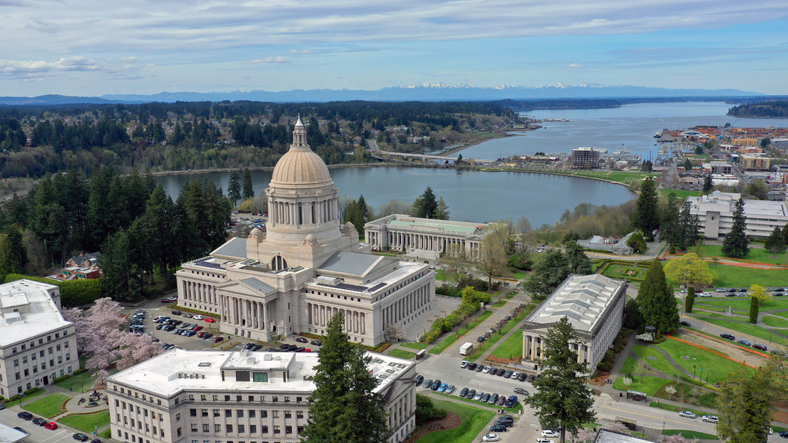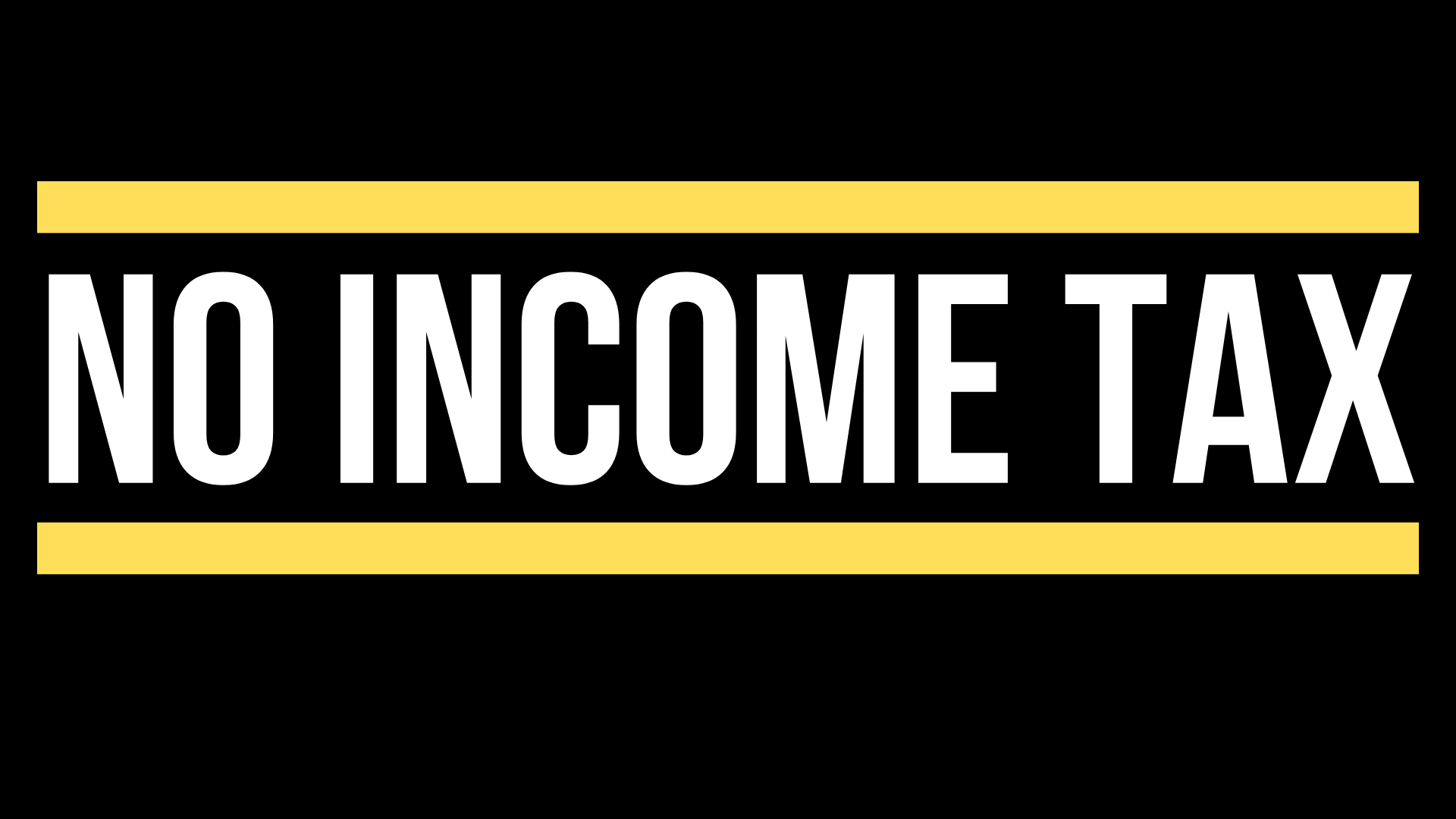Two back-to-back stories during the legislative session demonstrate the stark contrast between how public policy is currently made and, alternatively, the approach that is most likely to yield effective solutions.
When leaders in the Washington state House and Senate released their budgets, they proposed large increases in spending and a massive increase in taxes, particularly on the innovative companies that are key to the state’s economic growth and well-being.
One day later, Seattle Mayor Bruce Harrell announced a major shortfall in revenue from payroll taxes that he said was due to “major employers moving thousands of high-paying jobs out of Seattle to other cities in our region.”
Did Olympia legislators learn from Seattle’s experience and reconsider taxes the mayor claimed were likely to push jobs and innovators out of the state? They did not and legislators ultimately went ahead with tax policy that is similar to Seattle’s job and revenue-killing approach.
Given a clear warning, why would legislators choose that approach? A major reason is that the current process of political discourse and decision-making is directly at odds with the process of finding successful solutions. Rather than trying a variety of approaches and being open to counterintuitive discoveries, political discourse focuses on narrow identities bolstered by bravado and certainty.
Although those on the left and right prioritize different identities – favoring “marginalized” groups or “patriots” – both can fall pretty to using identities as a shortcut, narrowing the focus of potential solutions when considering a diversity of approaches implemented people and businesses closest to the problem would be superior.
Trial and error plus humility is best for problem-solving
One of the most effective ways to solve problems is to try a wide diversity of approaches and to be humble about the results and be open to counterintuitive outcomes.
Solving complex problems is difficult and dynamic. The chance that a particular approach will be correct, and remain correct over time, is extremely low. Success is more likely with trial and error and the more trials than can occur, the more likely we are to find the best solution and find it quickly.
That requires humility and the willingness to discover solutions that are counterintuitive.
Public policy is littered with examples of unintended consequences and approaches that backfired. For example, WPC’s Agriculture Director Pam Lewison interviewed migrant farmworkers who explained that the overtime pay law intended to help them actually made their life worse, reducing their hours and pay.
As simple as that sounds, trying many things and being open to being wrong is difficult. It creates uncertainty and that has a cost. If we could get the right solution the first time, it could, theoretically, save a lot of time and money. People also like to feel they have superior knowledge. Admitting we don’t know the answer, on the other hand, makes us no different from any other knucklehead with opinions.
Identity and arrogance
The more seductive path is to do what appears obvious rather than “wasting” time with public policy experiments. As entrepreneur Shlomo Klapper recently noted, “In public life, we don’t cheer the uncertain—we amplify the loud and absolute. Social media thrives on certainty, not nuance.”
Many politicians, activists and politically engaged members of the public address policy problems in ways that intentionally focus on political allies. Rather than claiming to be open-minded and listen to all sources, it is now common for people to say they don’t believe anything said or written by those they disagree with. They wear their myopia as a badge of honor.
Identity politics becomes a substitute for fact finding. People substitute the culture war and identity politics for reality in part because identifying facts is difficult and also because it is comforting to believe you are on the righteous team or right side of history. Why should we listen to someone who isn’t a “patriot,” or a member of a “traditionally marginalized community”?
Complicating matters, people are often dishonest about their intentions, masking base political agendas in the cloak of high-minded principle. Policy becomes a means to achieve other agendas or used to signal membership of an identity team.
For example, Washington legislators adopted a tax on Tesla that directly undermines the system they imposed to increase EV sales. Instead of rewarding the company that has been most successful at achieving the goals they claim they want, they chose a strategy based purely on partisan identity, taxing a company owned by a political opponent.
My favorite in recent years is the admission that Portland’s “clean-energy fund” wasn’t “designed to maximize emission reductions.” Instead, they admitted that the goal was “was to guarantee that there would be community benefits for the people who are usually left out due to systemic racism.” Of course, that was not at all how the program was sold to the voters. They were told it would generate “clean energy,” not social justice. As a result, the program has failed to do what the literal title of the program claims it would.
When policymaking caters to a narrow range of approaches that appeal to a particular team identity and bolstered by arrogance, it shouldn’t be surprising that we see policy failure all around us.
As our Report Card for Washington’s Future notes, over the past decade, education test scores have declined, roads have deteriorated forest fires have become more common, job creation has declined and inequality has increased even as attention and spending on those issues has increased.
Fixing these problems requires us to turn our current political discourse on its head – admitting we know less than we think and being willing to admit that sometimes even people who aren’t like us may have a point.
This is hard to do. There are few rewards for admitting that you don’t know the answer or challenging identity-based political arguments. Others who prefer identity politics will criticize your motives, integrity, and intelligence. Their attacks will be personal rather than based on evidence. As long as we stick with the current approach of imposing one-size-fits-all decisions from above by people who have few incentives to admit they were wrong, this corrosive dynamic will continue to guide public policy.
Moving from divisiveness toward dynamic solutions
Part of the solution, as I wrote earlier this year, is to connect people more directly to the impacts of their decisions. I argued that, “Direct solutions, created by innovators and individuals who confront problems through trial and error, responding to successes and failures, are the most likely source of real solutions.” And the more innovators we have engaging in trial and error, the more likely we are to find those solutions.
This argues for shifting responsibility for solving important societal issues to local organizations and market innovators. However, for practical or political reasons, sometimes government takes the lead to address societal challenges. How can we reward politicians for choosing approaches that embrace a diversity of efforts and welcome the discovery of solutions that don’t neatly align with political identities?
It is critical to increase accountability for politicians and agencies. The more accountable politicians or government staff are when they fail to deliver on promises, they more likely they will engage in efforts that increase the likelihood of finding real solutions, such as trying several options. Government programs that don’t hit targets should be reformed or defunded.
But what incentive is there to do that? As we have seen again and again, there are strong incentives simply to ignore the failure of programs.
Fundamentally, the incentives of politicians and staff at government agencies may not align with effective policy solutions. What government agency is going to admit their work is not effective? What politician is going to admit their favored policy didn’t work and that they were wrong? And yet, acknowledging failure and mistakes – and taking risks that lead to failure and mistakes – are absolutely critical to solving difficult problems.
Ultimately there is no perfect solution to address the tension between the reality that politicians and bureaucracies are rigid, political and arrogantly resist accountability and the fact that government is sometimes the best way to overcome collective action problems that make it hard to solve problems voluntarily.
For too long, however, the bias has been toward reflexively giving agencies more power and spending more taxpayer money without addressing the underlying limits of that type of approach. It is time to flip the narrative and begin with a more dynamic approach of trial and error that is consistent with effective problem solving.






